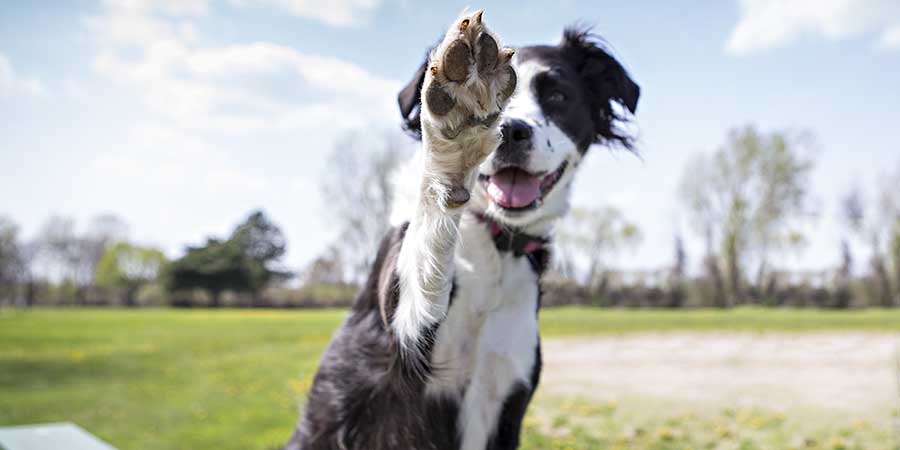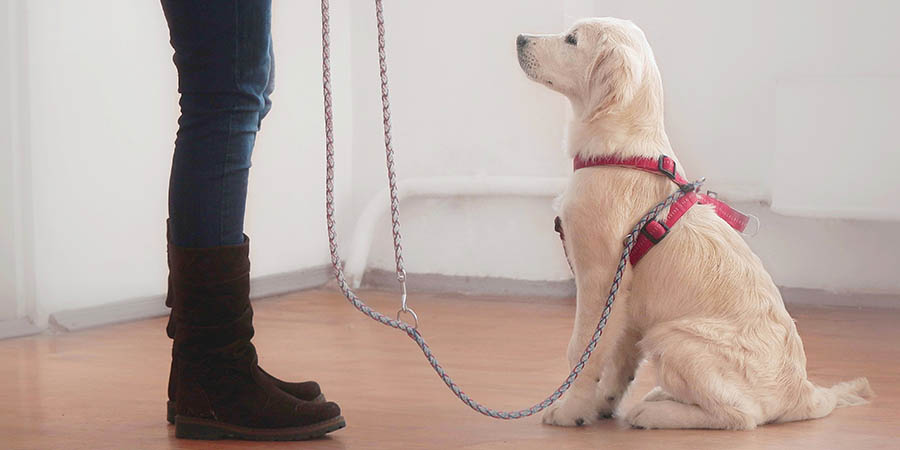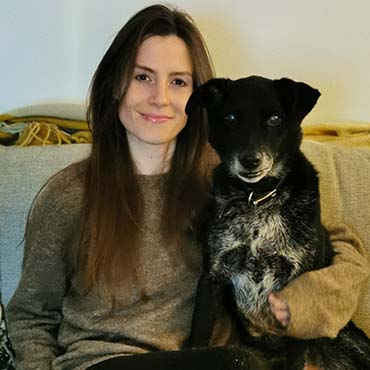Now is the perfect time to be spending quality time with your dog. Working on training will be fun for you both and is shown to strengthen your bond. My top training tips below will help ensure your training experience is enjoyable, entertaining, and effective!
These tips don't just apply to dogs - cats, rabbits and small rodents can also be trained using positive methods very successfully.
1. Use positive methods
This basically means your dog gets something they like (a treat) when they perform a desired behaviour such as a sit, or lie down. When they get something they enjoy, it means this behaviour is more likely to be performed again.
There is a lot of misleading training information on the internet which could cause damage to your pet’s wellbeing. Resources that discuss concepts such as dominance and pack structure should be avoided as this theory has been disproven multiple times. Advice that uses aversive training methods can cause pain and are detrimental to your dog’s mental health.

2. Reward your dog with something they really like
Most dogs are very motivated by food, but some may love a toy more. You will be best placed to know what motivates your pet the most.
When training something easy such as a sit in a quiet environment (like your living room), 'low value' treats such as some kibble from their normal food will usually work, but for something more difficult or if you are in a distracting place, you may need to use something more yummy such as little pieces of sausages or chicken. Something they very rarely get works well.
3. Start with the basics and help your dog to be successful
Get the basics mastered like sit, down, and stay in lots of different environments before moving on.
If your dog seems tired or distracted let them take a break. Training won’t be fun for them if they are not focused or engaged so it is important to make training sessions short with frequent breaks.

4. Remember your pet is always learning
Training doesn’t just take place during your ‘training sessions’ or at class.
For example, many dogs pull on the lead to get to where they want quicker, which is rewarding. On the other hand, if you don’t reward your dog for coming back every time and only do it during training sessions, it will be much harder to teach them recall and they will be less motivated to come back to you. So it is important to be mindful that they are always learning.
5. Be patient
Training take a lot of time and effort from both you and your pet. A session of eight training classes or working on something for a month isn’t going to be enough.
Reinforcing behaviours that we want has to happen all the time, otherwise the pet will learn that performing this behaviour doesn’t result in something good. Try to put yourself in their place, would you work for free?
In general, use accredited trainers if you wish to go to classes or take private lessons, and don’t believe everything you watch on TV or read on the internet.

